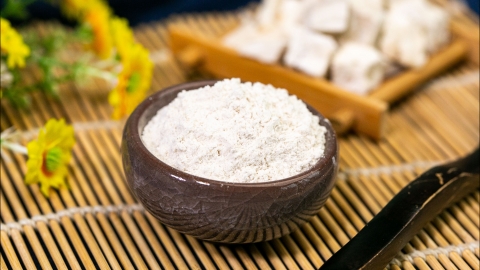Is it safe to eat raw kudzu starch?
Generally speaking, it is not recommended to consume kudzu root powder without fully cooking it. The detailed explanation is as follows:

The starch in kudzu root powder remains in its raw granular form when uncooked, with a compact structure that is difficult for salivary amylase and pepsin to break down. These uncooked starch granules may pass directly into the intestines and stimulate the intestinal mucosa, potentially causing bloating and diarrhea. This risk is particularly higher for individuals with weaker digestive systems, such as pregnant women, children, and elderly individuals. If the kudzu root powder has been contaminated with pathogenic bacteria like Salmonella or Escherichia coli during production or storage, insufficient heating may fail to inactivate these pathogens. This could lead to food poisoning symptoms such as vomiting, fever, and dehydration after consumption. In severe cases, it may even cause bacteremia or sepsis.
Active components in kudzu root, such as isoflavones and puerarin, require high temperatures above 80°C to be effectively released. The extraction efficiency of these components may be reduced in uncooked powder, thereby weakening its antioxidant and endocrine-regulating effects. Therefore, it is not recommended to consume uncooked kudzu root powder directly.
Regardless of whether kudzu root powder is cooked or not, it should be consumed in moderation to avoid overburdening the gastrointestinal tract. Additionally, it should not be consumed together with pungent and warming foods such as ginger and lamb to prevent conflicting effects of cold and heat. Caution should also be exercised when combining it with anticoagulant medications such as warfarin or aspirin, as this may increase the risk of bleeding. If any adverse reactions occur after consuming kudzu root powder, it is advisable to seek timely medical consultation.









